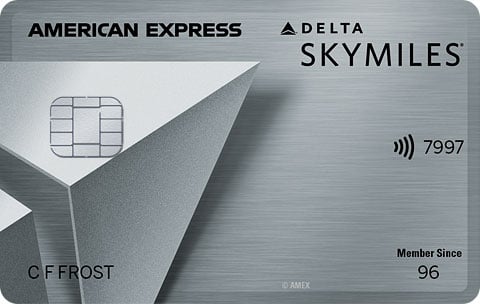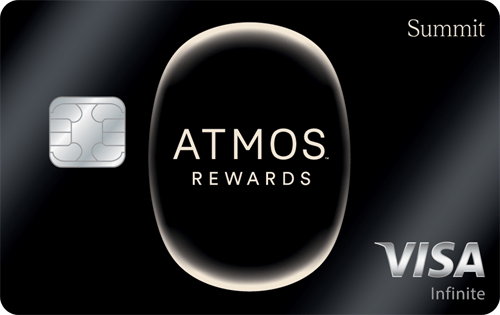The Best Airline Elite Status
Most U.S. airlines offer an elite status program to recognize loyal customers. Which one is the best?

Many or all of the products on this page are from partners who compensate us when you click to or take an action on their website, but this does not influence our evaluations or ratings. Our opinions are our own.
Airline elite status can elevate your flying experience, whether through complimentary upgrades or better customer support. But not all airline elite status programs are built the same. Some have steeper requirements to earn status, while others offer better perks.
Elite status with airlines is also generally expensive to earn. There are some shortcuts, but it’s typical to spend a few thousand dollars with an airline to earn elite status. And unlike hotels, there are few credit cards that offer automatic airline status.
After comparing the loyalty programs of six major U.S. airlines, we found Alaska Airlines and Hawaiian Airlines’ Atmos Rewards offers the most compelling elite status program, thanks to its innovative elite-earning metrics and unique elite status perks for top-tier flyers.
The elite status program that benefits you most might also depend on the tier. We looked at entry-level and ultra-tier. Travelers dipping their toes in the elite waters should pay special attention to the former, while savvy business travelers should compare the higher tiers.
Keep in mind that the true value of an airline elite status program will depend on your travel habits and interests. For example, those who rarely check bags or have an airline credit card that offsets bag fees will get little value from elite bag perks. Make sure to weigh how you travel before deciding your own airline loyalty.

By signing up, you will receive newsletters and promotional content and agree to our Terms of Use and acknowledge the data practices in our Privacy Policy. You may unsubscribe at any time.
Best overall elite status program
Winner: Atmos Rewards
Atmos Rewards is our pick for best overall elite status program, in large part due to the choice earn program it’s launching in 2026. Instead of a single earning method, Atmos Rewards members will choose from three ways to earn elite status for the year: dollars spent, distance flown or flights taken.
This allows members to choose the method that best fits their travel style. For example, if you fly mostly on cheap tickets on transcontinental flights, you’ll likely want to go with the distance flown metric. But if you buy a lot of last-minute premium-cabin tickets, the dollars spent metric will make the most sense for you. Unless you fly a lot within Hawaii, Alaska or California, the flights taken metric probably isn’t the best choice.
» Learn more: The complete guide to Atmos Rewards elite status
That flexibility makes earning elite status with Alaska Airlines and Hawaiian Airlines accessible to more types of travelers, which is a win-win in our book. While Alaska’s route network is still relatively small, its partnership with American Airlines — which allows for both programs’ elites to get complimentary upgrades and other benefits on both airlines — helps make up for that deficit.
Plus, it doesn’t hurt that Atmos points can be extremely valuable for booking flights on Alaska, Hawaiian and other partners like American, Condor and Japan Airlines.
Best entry-level elite status
Winner: American Gold
American Airlines Gold status offers great value for an entry-level status tier. That status is relatively easy to earn for semi-frequent American flyers, especially if you also earn Loyalty Points with an American Airlines credit card.
Before you pursue entry-level elite status, keep in mind that this lowest level of elite status won’t get you very far, regardless of which airline you choose. While you might score an occasional upgrade, don’t expect it to happen often if you primarily fly on popular routes. In fact, most elite status benefits like free checked bags and priority boarding can be had simply by holding an airline’s credit card.
However, if you can organically reach this status, there are some benefits airlines offer that might come in handy, such as access to dedicated customer support lines.
Best ultra-tier elite status
Winner: Atmos Titanium
If you’re pursuing ultra-tier elite status, Atmos Titanium offers rewarding perks that stand out from the competition.
For example, starting in spring 2026, Titanium members will have access to complimentary day-of-departure upgrades to international long-haul business class on Alaska Airlines, a benefit no other U.S. carrier offers. That’s a unique benefit that can provide a lot of value if you travel abroad often.
Plus, Atmos Rewards offers members milestone perks as they work their way to reaching Titanium status. Options include upgrade certificates, bonus points, lounge passes and more. If you’re willing to put in the effort to reach Titanium, there are a lot of goodies for you to choose from.
Credit cards for earning airline elite status
Annual fee
$99.
$350.
$395.
$149.
Elite earning benefits
Earn one Loyalty Point for every dollar spent on the card.
Get a 2,500 Medallion Qualification Dollars boost annually. Earn 1 MQD per $20 spent on the card. Terms apply.
Get 10,000 status points every account anniversary. Earn 1 status point per $2 spent on the card.
Earn 1,500 Tier Qualifying Points for every $5,000 spent on the card.
Still not sure?
How to pick the best airline elite status
Atmos Rewards is NerdWallet’s pick for the best airline elite status program, largely because it lets members choose how they earn status.
However, whether an airline elite status program is worth it for you will depend on a lot of personal factors, such as your home airport and where you travel to the most. For example, if you live in Atlanta, it might not make sense for you to earn status with Alaska Airlines. Instead, you might want to pursue elite status with Delta Air Lines, which has a significant operation in Atlanta.
Regardless of which elite status program you choose, make sure you evaluate what each program offers across its tiers. Elite status benefits are only worth as much as you use them, so factor that into your decision as well.
To view rates and fees of the Delta SkyMiles® Platinum American Express Card, see this page.
How to maximize your rewards
You want a travel credit card that prioritizes what’s important to you. Here are some of the best travel credit cards of 2026:
- Flexibility, point transfers and a large bonus: Chase Sapphire Preferred® Card
- No annual fee: Wells Fargo Autograph® Card
- Flat-rate travel rewards: Capital One Venture Rewards Credit Card
- Bonus travel rewards and high-end perks: Chase Sapphire Reserve®
- Luxury perks: American Express Platinum Card®
- Business travelers: Ink Business Preferred® Credit Card
Article sources
NerdWallet writers are subject matter authorities who use primary,
trustworthy sources to inform their work, including peer-reviewed
studies, government websites, academic research and interviews with
industry experts. All content is fact-checked for accuracy, timeliness
and relevance. You can learn more about NerdWallet's high
standards for journalism by reading our
editorial guidelines.
Limited Time Only: Earn $1,000 Toward Travel!
Capital One Venture Rewards Credit Card 
Travel

For a limited time, the
Capital One Venture Rewards Credit Card is offering new cardholders an especially rich bonus: Enjoy $250 to use on Capital One Travel in your first cardholder year, plus earn 75,000 bonus miles once you spend $4,000 on purchases within the first 3 months from account opening - that’s equal to $1,000 in travel!
More like this
Related articles






